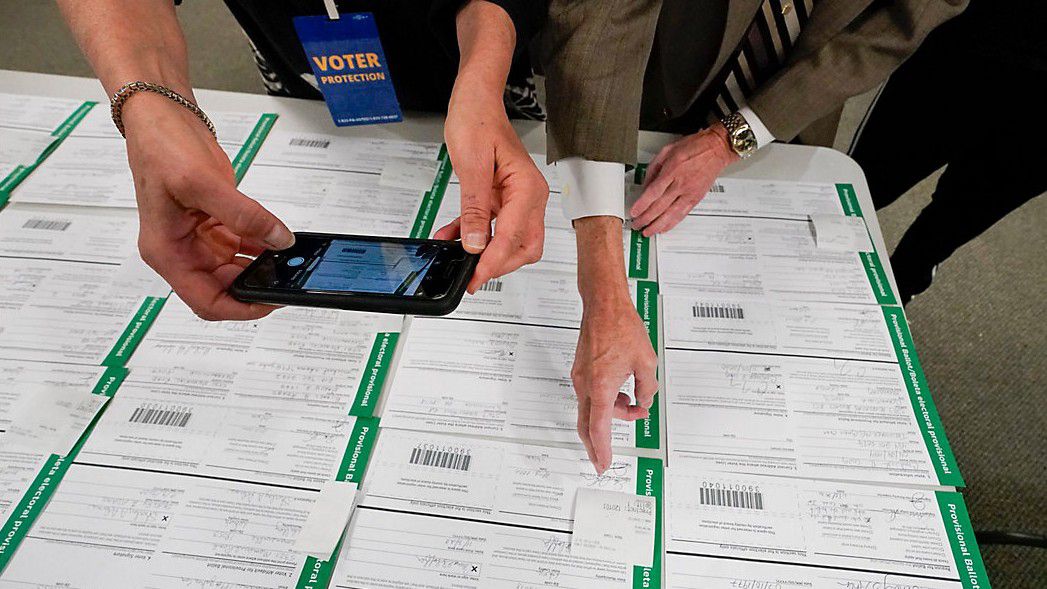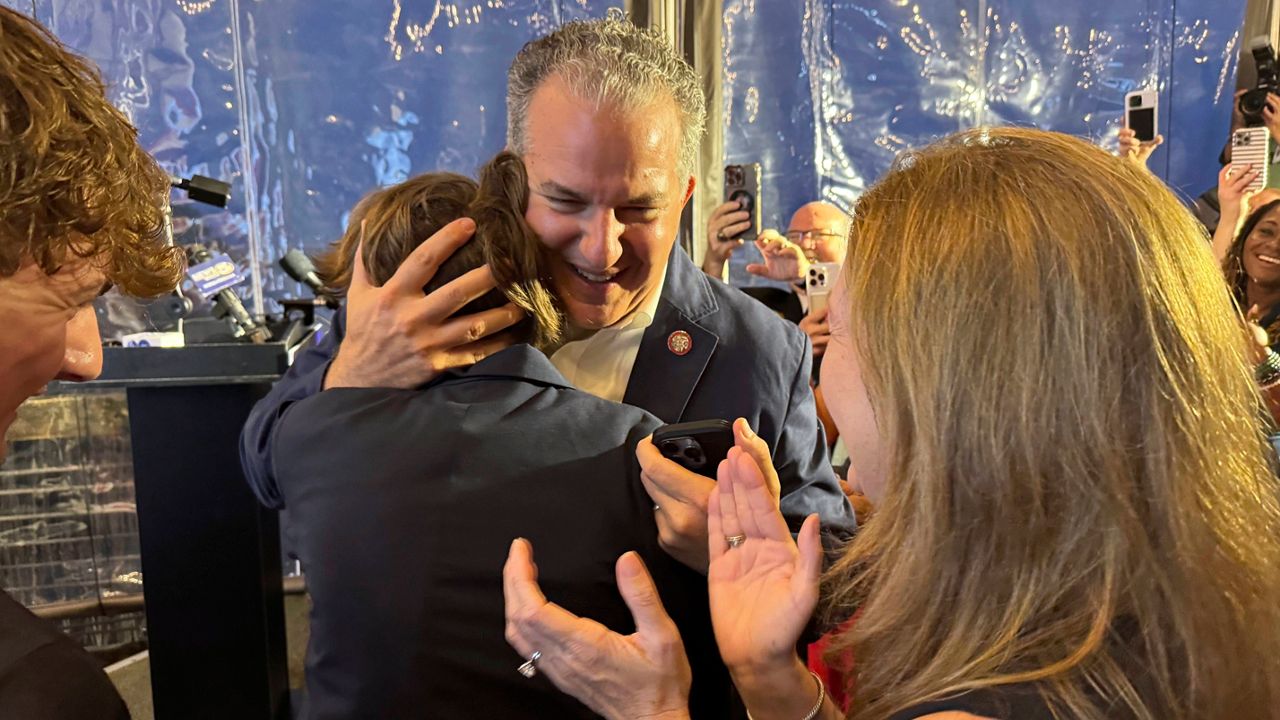Pennsylvania's highest court on Saturday night threw out a lower court's order preventing the state from certifying dozens of contests on its Nov. 3 election ballot in the latest lawsuit filed by Republicans attempting to thwart President-elect Joe Biden's victory in the battleground state.
The state Supreme Court, in a unanimous decision, threw out the three-day-old order, saying the underlying lawsuit was filed months after the expiration of a time limit in Pennsylvania’s expansive year-old mail-in voting law allowing for challenges to it.
Justices also remarked on the lawsuit's staggering demand that an entire election be overturned retroactively.
“They have failed to allege that even a single mail-in ballot was fraudulently cast or counted,” Justice David Wecht wrote in a concurring opinion.
The state's attorney general, Democrat Josh Shapiro, called the court's decision “another win for Democracy.”
President Donald Trump and his lawyer, Rudy Giuliani, meanwhile, have repeatedly and baselessly claimed that Democrats falsified mail-in ballots to steal the election from Trump. Biden beat Trump by more than 80,000 votes in Pennsylvania, a state Trump had won in 2016.
The lawsuit, led by Republican U.S. Rep. Mike Kelly of northwestern Pennsylvania, had challenged the state's mail-in voting law as unconstitutional.
As a remedy, Kelly and the other Republican plaintiffs had sought to either throw out the 2.5 million mail-in ballots submitted under the law — most of them by Democrats — or to wipe out the election results and direct the state's Republican-controlled Legislature to pick Pennsylvania's presidential electors.
In any case, that request — for the state’s lawmakers to pick Pennsylvania’s presidential electors — flies in the face of a nearly century-old state law that already grants the power to pick electors to the state's popular vote, Wecht wrote.
While the high court's two Republicans joined the five Democrats in opposing those remedies, they split from Democrats in suggesting that the lawsuit's underlying claims — that the state's mail-in voting law might violate the constitution — are worth considering.
Commonwealth Court Judge Patricia McCullough, elected as a Republican in 2009, had issued the order Wednesday to halt certification of any remaining contests, including apparently contests for Congress.
It did not appear to affect the presidential contest since a day earlier, Gov. Tom Wolf, a Democrat, had certified Biden as the winner of the presidential election in Pennsylvania.
Wolf quickly appealed McCullough's decision to the state Supreme Court, saying there was no “conceivable justification” for it.
The lawsuit's dismissal comes after Republicans have lost a flurry of legal challenges brought by the Trump campaign and its GOP allies filed in state and federal courts in Pennsylvania.
On Friday, a federal appeals court in Philadelphia roundly rejected the Trump campaign’s latest effort to challenge the state’s election results.
In that lawsuit, Trump's campaign had complained that its observers had not been able to scrutinize mail-in ballots as they were being processed in two Democratic bastions, Philadelphia and Allegheny County, which is home to Pittsburgh.
Trump’s lawyers vowed to appeal to the Supreme Court despite the judges’ assessment that the “campaign’s claims have no merit.”









